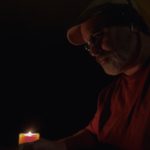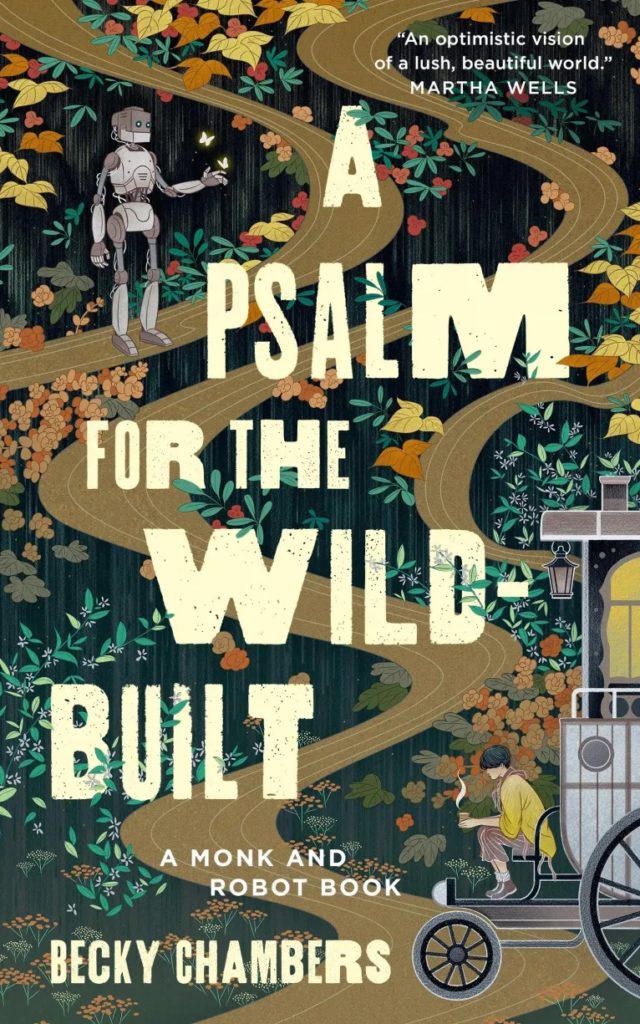“I refuse to have a battle of wits with an unarmed man.”
—Oscar Wilde
Notes: An Object at Rest.

I love motels.
In my adult life, I’ve finally graduated to an income bracket that allows me to upgrade my lodging options so I could, if I wanted, hole up in fancier digs, with niceties like a pool, all-you-can-eat breakfast, as many pillows as one feels comfortable requesting, and the holy-of-holies, a hot tub next to the pool, but my heart still stops for these old roadside resting places.
I’m on an annual mission, driving three hundred miles to perform for free for twenty minutes at an electronic music festival for an audience of fifteen to twenty people who are mostly the other musicians from the festival, and the drive this time was wearing, with a hour spent navigating the crawling traffic piled up behind a highway accident that the supposedly intelligent machinery behind the map application on my mobile device utterly failed to route me around (in the end, I engineered my own detour and saved a good forty-five minutes). So, despite leaving on time, I lumbered through the swooping byways through Pennsylvania mountains, alerted frequently to watch for deer by signs with a stylized jumping buck over a farcical number of miles that was computed…how, exactly?
I paused at a rest stop where a machine would dispense, for my utility, a gritty horror it labeled a “capuccino” (my options on the machine, announced after I’d paid, as instant or decaf) to me, which I managed to spill all over myself, but I credit it with enough caffeine to keep me alert and alive for the last hour and change where the road fatigue was properly kicking in. I listened to the remainder of the familiar radio drama that had kept me company for a couple hundred miles, and in the last moments, as the credits played, I pulled up into the forecourt of the old motel, laid out in the midcentury style, with a little office at the center of two low, sweeping wings of rooms, each door facing its own parking spot, parked, and and staggered into the office with all my road cramps in concert.
The office smelled of cabbage, which was made all the more clear by the presence of a large glass-fronted refrigerator filled halfway with those large, oblong cabbages you find in an Asian grocery store, and the rustling from the back room announced the hunched older gentleman who shuffled in and quietly answered as I indicated I’d booked and paid online. He had me present my ID, fill out a card with my relevant information, and sign the card and receipt for the four nights I’ll be here, and handed over what I was delighted to find was a proper old-fashioned motel room key on an oversized orange fob, and I headed back to the car to move to the slot in front of room #4.
In cheap motels, one always opens the door for the first time with a little hesitancy, a lottery not enjoyed by my husband, who prefers the dependable security of a room with no potential for surprises, as there will sometimes be a bilious cloud of aging cigarette stink even for a room officially marked as non-smoking, or the scent of mold, mildew, or sewer issues, but this one was a reminder.
I took a deep breath and it was all 1978, that sort of vaguely musty smell of settled air and linens freshly washed a couple weeks prior, and I was happy.
The room is vintage in all the ways I prefer, with old, but not rickety, furniture, painted-over paneling, and a bathroom that is functional and tightly screwed together, and if not for the flat television, the composite flooring in lieu of linoleum or the horror of ancient wall-to-wall carpet, and the spotted lanternfly flitting around the room it might as well be on of the motels I stayed in in my first ventures with a car, nearly forty years ago.
It is a nostalgic moment and I am comfortable with that, with a nice place to stop and stay for a while that brings back family trips in our enormous silver and purple Chevrolet Suburban, where we’d book in late on the road to Georgia, get a big room with a cot, turn the AC up, and turn on the TV, and I’d be home there, in a place that, for the moment, I could pretend was the world I actually lived in.
I love that feeling of settling in, even if I’m only staying in a place for a night, where I put my bags in the drawers in the dresser and line everything up neatly as if I intended to put down roots and live there forever, or just for a brief interval before moving on like a seasoned traveler of the world.
The bed is comfortable, the toilet is bolted firmly to the floor and the seat isn’t loose—the giveaway sign of an innkeeper that has graduated from caring about their work—and the water doesn’t stink of sulfur or fish. The toilet flushes with a peculiar symphony of clicks, hisses, and, at the end of the cycle, a combination of a bell-like sound and a last gloomph, and I am comfortable with that and the sound of the wall-mounted AC fan and the nearby interstate churning away like a fine work of the drone musician’s art. The side street traffic rises and falls, punctuated by the rumbling of trucks, and I note, looking out of the little bathroom window as I’m brushing my teeth and shaking a handful of pills out of the TH slot in my pill minder, that my room backs up to the scenery of a auto repair shop and a camper trailer rental lot. I spit, rinse the sink, slug down four tablets, and switch off the light.
It is just a place that isn’t really a place. I’ll be here for four nights, then leave, and it’s statistically unlikely I’ll ever be in this room again for the remainder of my life, but that doesn’t trouble me like it used to back in 1978, when I was ten and things and places had a life for me like the spirits in animist religions, where every object and place was haunted by little ghosts that I’d only just met, and then had to leave behind. I used to feel a terrible sadness when we’d pack up, load the Suburban, and leave, wanting to gently touch the walls and whisper “Goodbye,” and “You were a very good motel room” before continuing on the family travels, but pragmatism and a long-running pattern of loss makes it easier and easier to say goodbye to such things.
In the interim, this is my home away, at the industrial edge of a Northern town that’s showing its age and its own losses, and between my time spent with others on my same wavelength, I’ll hole up here, organizing the room as if it’s mine, and then head out again, on the trip with a destination that’s not as far away as it used to be, and that is as things always are.
© 2025 Joe Belknap Wall
The blue hours, part one.
I’ve begun to properly embrace what I’ve learned is called a “biphasic” or “multiphasic” sleep pattern, casting away the busispeak “insomnia” and all its attendent judgement of a lack of productivity in sleep, for Pete’s sake, as one more of the wretched impositions of a clockwork life in the planet-wide currency mill, and it’s connecting me with parts of myself that I’d glimpsed from a distance for most of my life.
I’ve always loved the blue hours—those in-between spaces when the rest of the world is largely taking place just around the curve of the Earth. I wake up, sometimes at oddly familiar times, like when I stir, tap my watch on its little charging stand to see when it is that I’ve resurfaced, and return, in eye-friendly green text, “3:01” or “5:05” or “4:33,” and wonder if they’re part of that dreamland oracle meant to give some meaning, or if it’s just pareidolia connecting a pattern with random reflections within my memory palace, assigned a value in the way we used to think the patterns of the stars had something to say about our lives.
At 5:05, I stir, quietly as to avoid waking my partner or our dogs, slip out of the bed, gather up my daily devices in a pocket, and quietly tiptoe out, taking care to close the door with all the stickers and one gently snoring child, before I creakily descend the stairs to lurk deliciously in the great empty volume of the house.
Today, I light a candle, take a photo of myself perched in front of my little writing device, as if to document some grand artistic process instead of just letting it happen unseen in the little breakfast nook, sip at a strong cup of tea with heavy cream and no sugar, and start to write, once I’ve irritably solved the problem of what impossible string of letters, numbers, and special characters will get me into my website.

Outside, the sky is going through that gorgeous procession of blue to blue to blue, and the horizon is just taking on the threads of pink and gold that precede the sunrise on that side of the house. I’m a little unsettled, still from one of those dreams that’s not bad at all, but leaves one with a feeling that something’s not quite right, but there’s tea and a candle and music in my earphones and there is nothing to do but do. I was reminded recently how it important it is to embrace a radical incrementalism and write a little each day, or do a little work towards a goal, or otherwise just continue on a track with an endpoint yet to be revealed, so I set to work, in my own way and at my own pace.
It is a good thing.
© 2023 Joe B. Wall
Reading: Becky Chambers
A recent exchange reminded me of a great book I read recently, as an attempt to rediscover the love of science fiction I’d once had, and which had faded with the devolution of sci-fi into bleak pessimism, a perverted wallowing in the supposed hopelessness in our species, diseased and fetishistic lusting for (and after) the apocalypse as a sort of displaced modernization of the religious sickness of the flagellant, and war war war war war war war and every narrative turning on the gun, because people can’t be bothered to read Ursula K. Le Guin’s elegant counter in the brief, but insightful, “The Carrier Bag Theory of Fiction.”
I’d gone so far as to attempting my own sci-fi novel as a nod to James Murphy’s excellent dictum that the best way to complain is to make things, setting some basic rules—no war, no AI, no FTL travel, no artificial gravity, no murders…and so on—writing at a leisurely pace that equates to “I wonder if I’ll finish this before I die,” but along the way, helpful fans in my circle pointed out some excellent humane modern science fiction of a genre that’s been dubbed “solarpunk,” which inspired me to wonder if I could catch the tail of that flowing gown as its practitioners stride into a future that’s not the usual grimdark catalog of miseries.
One of my favorite suggestions has been the work of Becky Chambers, a fantastic writer in the field, and I recently finished the first two books of her Monk & Robot series, which exist in a pastoral future where, when AI arose suddenly in that stabilizing green future, the response wasn’t war war war, but a collective release with an apology, as their former workforce was treated to an apology and the right to live as they chose…and they chose to disappear into the recovering forests of the moon where they all lived and disconnect from their former masters.
(more…)A voice, telling a tale
I’m a fervent enthusiast of audio media, from old radio drama to modern radio drama and audiobooks of all stripes, and despite being a voracious reader of tattered paper books in my youth (and still, though more on digital readers lately), I’m increasingly of the opinion that, in contrast to the nostalgic claims that books are the grand tradition of literacy and stories told aloud on tape/disc/data are the brash upstart, oral storytelling is innate to humans (obviously with allowances to be made for reasons of hearing/neurodivergence) and has been for a hundred thousand years, while books available on scale to the masses are more or less a mostly post-20th century phenomenon.
(more…)cooking: Daisy Eggs
Snow days, birthdays, and other holidays and observances are special days for me, and on special days, I like to make special breakfasts, usually including my favorite breakfast dish in the whole entire universe (scrapple being a very, very close second) — daisy eggs.
and other holidays and observances are special days for me, and on special days, I like to make special breakfasts, usually including my favorite breakfast dish in the whole entire universe (scrapple being a very, very close second) — daisy eggs.
They’re a bit of work, but make the rest of the day seem like something more than it might be, another chance to be here—all here, all now, just me and my breakfast against the forces of gloom in the world.
Unsocial media

The tail end of COVID in my region means my social life can go back to being casual but sophisticated dinner parties, rollicking house concerts, nights at the bijou, and playful country drives in ridiculous old French cars, but even more, it means I can start edging towards the exit of the various manipulative, cynical, and life-diminishing social media platforms we’ve all depended on for the past year.
Here’s to a return to real life—surprisingly, I’ve come to miss it.
[2022 update: Alas, the antivax/antimaskers kept us in it for a while longer, with the Omicron variant heating up and set (supposedly) to peak this month. Still, we have vaccines, quick tests, and smart people to hang out with on small scales while the rest of the crowd gets their act together.]
Composite.
I’ve been catching up on my composite novels after realizing, some time back, that the reason I wasn’t writing a book wasn’t that I’m not inherently a writer as much as my natural rhythm and flow for writing came to me from my adoration of books that I never understood to be composite novels, or story cycles. So I read Winesburg, Ohio and The Martian Chronicles and The Women of Brewster Place without ever realizing that this is, in fact, the style that I would eventually write in without intending to do so. With hindsight, it’s nice to explore others in the form for examples of how to best adjust the machinery of stories and start stringing together the great fluttering belts linking things all together into a coherent whole in which the parts, too, are complete.
In the same way, my longtime love of Jean Shepherd, transmitted to me via my father’s focused delivery of fifth-generation bootlegs of his old radio show, in which he worked in the mode of sequential and interlinked narratives coming together to build epic serial adventures in Hammond, Indiana, has fed much of my stage work, where I mix and mutate and exchange stories on the fly, always open to swapping narratives in the possibility that that juxtaposition will open up a little window on something in the story I’d never noticed.
“When are you going to write that book?” I’m asked, and I have, really, though in the form of hundreds and hundreds of stories written over the past twenty-five years, but I wasted too much time thinking I was meant to write like we think novelists should write, following a single character through a single narrative, from beginning to end, unfolding over hundreds of pages to an expected or unexpected denouement.
I don’t know early on that my stories work that way, but as I’ve been listening to more and more podcasts, and thinking of how the best among them work much like those books made of other stories, and those serial narratives I’ve heard on old radio from before I was born, all floating on the same river, all following the same current to the same place, and I think maybe the revival of my own long, slumbering podcast should start where the book I’ve been writing would have started, and visit the same places.
When I was small, back in Scaggsville, when I’d wake up too early, while the world was still blue and cool and suspended, waiting for the day to catch up with all of the things around me, I’d slip out onto our front porch in my footie pajamas and stand there on the cracked concrete of our porch, listening. The whole world made a noise back then, a sort of distant singing note that hung in the air, as delicate as a flock of birds all heading in the same direction, and I thought, in some way, that it was the sound of the world turning on its axis.
I’d later realize that it was only the sound of the nearby interstate, and of all the tractor-trailers on their way from somewhere to somewhere else, just tires roaring on the then-new pavement of I-95 and filtered through trees and air and humidity until it became a chorus under everything, just like my congenital tinnitus, always there, everywhere.
I would forever be mistaken about things, and learn.
This is a way to be in the world.
© 2018 Joe Belknap Wall
